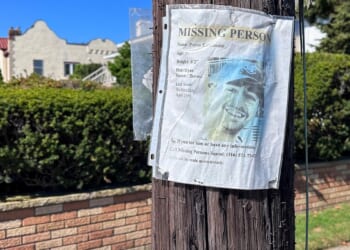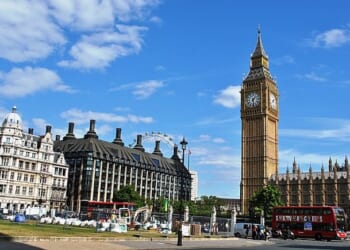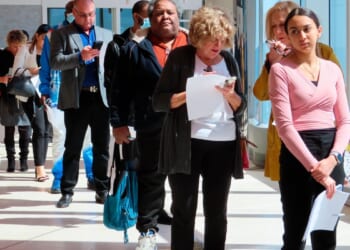
The administration has asked the Supreme Court to approve his move to deny recognition of birthright citizenship to babies born to illegal immigrants and temporary visitors, teeing up one of the biggest constitutional fights of the Trump presidency.
The move, first reported by CNN, brings the birthright case back to the justices just months after they heard an earlier iteration. That previous case focused on how lower court judges blocked President Trump, with universal injunctions that went beyond the parties that sued.
This new appeal puts the automatic citizenship question squarely before the justices.
Solicitor General D. John Sauer said the lower court rulings finding the president’s plan violates the 14th Amendment reflect a “mistaken” view.
“Those decisions confer, without lawful justification, the privilege of American citizenship on hundreds of thousands of unqualified people,” Mr. Sauer told the justices in appealing two cases, which had yet to be docketed as of Friday night.
The American Civil Liberties Union, which has battled Mr. Trump’s new policy in the courts, said the president is wrong on the law.
“This executive order is illegal, full stop, and no amount of maneuvering from the administration is going to change that,” said Cody Wofsy, deputy director of the ACLU’s Immigrants’ Rights Project.
It would take four justices to agree to hear Mr. Trump’s appeal.
The 14th Amendment says: “All persons born or naturalized in the United States, and subject to the jurisdiction thereof, are citizens of the United States and of the State wherein they reside.”
Mr. Trump argues that illegal immigrants and temporary visitors, such as tourists and guest workers, aren’t “subject to the jurisdiction” of the U.S., and their children can be excluded.
Four distinct cases challenging Mr. Trump ruled otherwise.
The cases out of New Hampshire and Washington state are the ones being appealed.
Those who oppose Mr. Trump say the issue was settled in the 1800s in a case known as Wong Kim Ark. In that ruling, the high court said a child born to parents legally in the U.S., although not citizens, had automatic citizenship.
Those who back Mr. Trump say that doesn’t directly answer the situation of illegal immigrants, and they say the case raises novel issues for the justices to grapple with. They point to long-standing exceptions to the 14th Amendment’s grant of citizenship, including children born to foreign diplomats.
Mr. Trump’s decision to act through executive order rather than seeking a change in law from Congress further complicates the case.
The president, in his order, directed government agencies not to issue or accept documents recognizing citizenship to children born to parents without permanent legal status.
In the previous go-around at the high court, the issue was over the scope of judicial power rather than the specifics of Mr. Trump’s birthright policy.
Still, some of the justices did tread into the legality of the president’s plan.
Justice Sonia Sotomayor said the 14th Amendment was passed to correct the “grievous error” of the 1857 Dred Scott decision, which denied children of Black slaves citizenship, and it enshrined automatic citizenship in the founding document.
“There it has remained, accepted and respected by Congress, by the Executive, and by this court. Until today,” she wrote.
She said the ruling in the Wong Kim Ark case does cover illegal immigrants.
“This court held that “[t]he Fourteenth Amendment affirms the ancient and fundamental rule of citizenship by birth within the territory,” she wrote.










